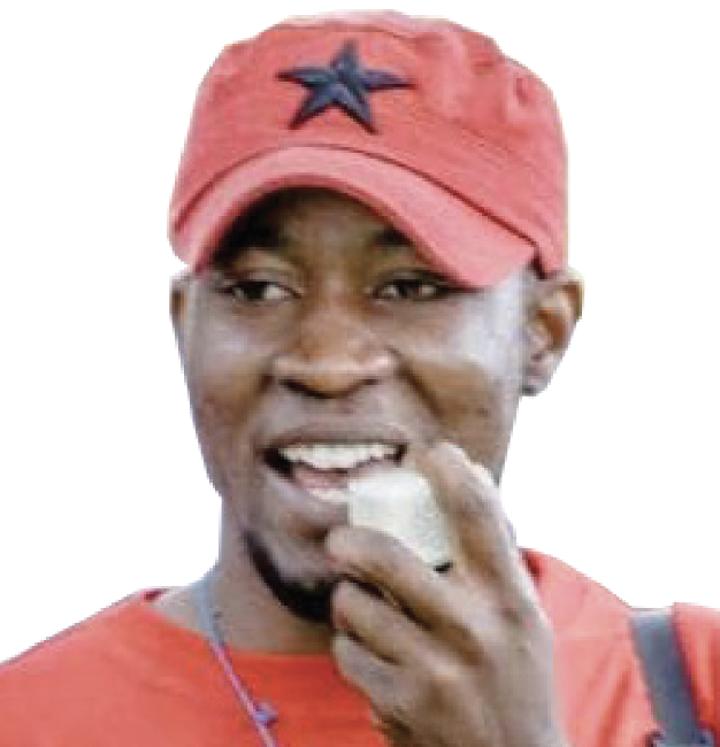Africa-Press – Namibia. Job Shipululo Amupanda
IN LAST FRIDAY’S The Namibian newspaper, professor Uchendu Eugene Chigbu wrote an article titled ‘Banning Foreign Land Ownership in Namibia: If it’s Anti-Foreigner, it’s Anti-African’.
Chigbu was responding to the discourse led by the Affirmative Repositioning (AR) movement on the land question in general and, in particular, the constitutional promise to prohibit or regulate land owned by non-Namibians.
AR submitted a bill to parliament that is now under discussion by a parliamentary standing committee on natural resources.
Chigbu makes general statements about what he claims are our proposals. He does not refer to the Constitution nor specific provisions in our draft legislation.
He ascribed to us what he calls ‘AR: Eight Troubling Assumptions’. He submits, as the ‘first assumption’, that “Namibian citizens cannot compete against non-Namibians in the land market” and answers that “the reality is that foreign natives control the market”.
We are not concerned about competition with foreigners or appeasing those who control the market.
At independence, the Constitution (article 16) promised that whereas all people have a right to acquire property, “parliament may, by legislation, prohibit or regulate as it deems expedient the right to acquire property by persons who are not Namibian citizens”.
It is thus not AR’s wish or assumption.
It is the Constitution that made this promise – before many AR activists were born and before AR was formed. I was three years old, living in the tranquility of my grandmother’s house at Omaalala when the Constitution was adopted.
We are showing how this promise can be fulfilled.
OUR PARAMETERS
Chigbu argues, secondly, that we assume that “non-Namibians lack the creativity necessary for alternative means of owning land” once the bill is passed.
We do not assume that, nor are we concerned about their criminality. We are asking for the constitutional promise to be fulfilled.
Thirdly, he ascribes to us an assumption that “Namibians are immobile people who do not travel to other countries and don’t aspire to make their homes in other countries” and responds that “non-Namibians countries will take retaliatory actions”.
Unlike in land administration, in political science there are concepts such as national security (and institutions to safeguard these).
No wise parent stops prioritising feeding their children because other parents may prioritise their own children in response. It is your responsibility to care for your children.
In China, if you are found with drugs, you are sentenced to death.
In recent years, several foreigners were sentenced to death on these charges, including three Canadians. In 2010, a South African, Janice Linden, was sentenced to death for drug smuggling.
Did the South Africans and Canadians retaliate?
Laws are made for and in the interest of subjects. It is foolish not to secure your people’s interests out of fear of imaginary reactions.
Chigbu adds other assumptions to which I won’t respond. However, suffice it to say, we are well within constitutional parameters. We will not be deterred from ensuring that this constitutional promise is fulfilled.
OUR SUBMISSION
Lastly, this misrepresentation must be dismissed: “Current data from the Namibian Statistics Agency (as presented by the AR during their parliamentary hearing) indicates that 27% of land in Namibia is owned by foreign natives and 14% by the government. About 61% of the land is owned by churches (with foreign-native links).”
We did not make such a submission.
What we presented to the parliamentary committee, also published in several newspapers in May 2022, is: “Our country’s land mass is calculated at more than 800 000 square kilometres, translating to about 82 million hectares. Of the 82 million hectares, 39 are agricultural freehold land.
“Of the 39 million hectares of agricultural freehold land, whites, the majority of whom are Afrikaners, own 27 million hectares or 70%. Blacks only own 16% of the 39 million hectares.
“The government owns a mere five million hectares or 14%. From this figure, we know that 12 380 farms are privately owned; 7 000 by individuals, 2 800 by companies, 1 200 by the government, 150 by trusts and 61 by churches.
“In our country, 250 farms, measuring 1,2 million hectares (1,2 million football fields), are owned by foreigners. Germans own 640 000 hectares, South Africans 300 000 hectares and Americans 82 000 hectares.”
It is important that educators and academics check their facts.
* Job Shipululo Amupanda is activist-in-chief of the Affirmative Repositioning movement and the former mayor of Windhoek. He holds a PhD in political studies from the University of Namibia
For More News And Analysis About Namibia Follow Africa-Press






